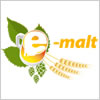

USA, Washington: Malt liquor drinks are not going to be taxed like beer anymore. Or, popular flavored malt beverages must have the majority of their alcohol come from the process of brewing if they want to be taxed and treated as beer products rather than higher-taxed liquor products. That's the upshot of final regulations announced Tuesday by the Treasury Department's Alcohol and Tobacco Tax and Trade Bureau. Companies will have until early January 2006 to comply, Associated Press commented on December 28.
The new regulations require that at least 51 percent of alcohol in flavored malt drinks be derived from the brewing process. No more than 49 percent of the alcohol may come from other flavorings added to the product, the bureau said in a release. The new regulations don't change the overall alcohol content contained in a flavored malt beverage - roughly 4 to 4.5 percent by volume_ but rather specifies the alcoholic makeup of these types of products, said Art Resnick, spokesman for the bureau. A message was left for the Beer Institute seeking comment. The Distilled Spirits Council of the United States had no immediate comment.
It's not clear exactly which brands will be affected, but the broad category includes things like Smirnoff "Ice," Bacardi "Silver" and Skyy "Blue." The Treasury Department is changing the rules for how those drinks are taxed. Right now, they're taxed like beer, which is a relatively low rate. But the Treasury Department says in many malt liquor drinks, the majority of the alcohol comes from distilled spirits, not from brewing. Some manufacturers add things like vodka or apple flavoring.
Resnick wouldn't name companies or products that would have to make changes to come into compliance. He said some products currently have roughly 90 percent of their alcohol coming from flavorings from distilled spirits, or liquor, in layman's terms. "The new standard allows only half the amount of added distilled spirits alcohol flavoring currently found in many flavored malt beverages," the bureau's release said. "Careful study determined that a large number of these products currently derive nearly all of their alcohol content from flavorings containing distilled spirits rather than from fermentation during brewing," the bureau said.
Government officials, however, believe companies will want to come into compliance to be taxed and treated as a beer product. Companies are being given roughly a year to do so because the new regulations "will require changes in manufacturing and production," the bureau said.
Regresar
E-malt.com, la fuente de información global para los profesionales de la industria cervecera y de malteado. Los boletines quincenales de E-malt.com incluyen las últimas noticias de la industria, estadísticas en gráficos y tablas, precios mundiales de cebada y malta, y otra información relevante. Haga clic aquí para obtener acceso completo a E-malt.com. Si usted es un cliente de Castle Malting, puede obtener acceso gratuito al sitio web y publicaciones de E-malt.com. Contáctenos para obtener más información en marketing@castlemalting.com.





